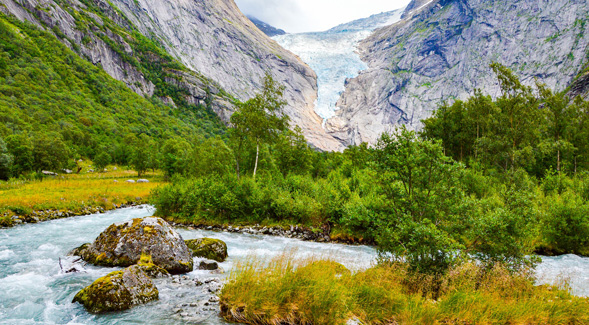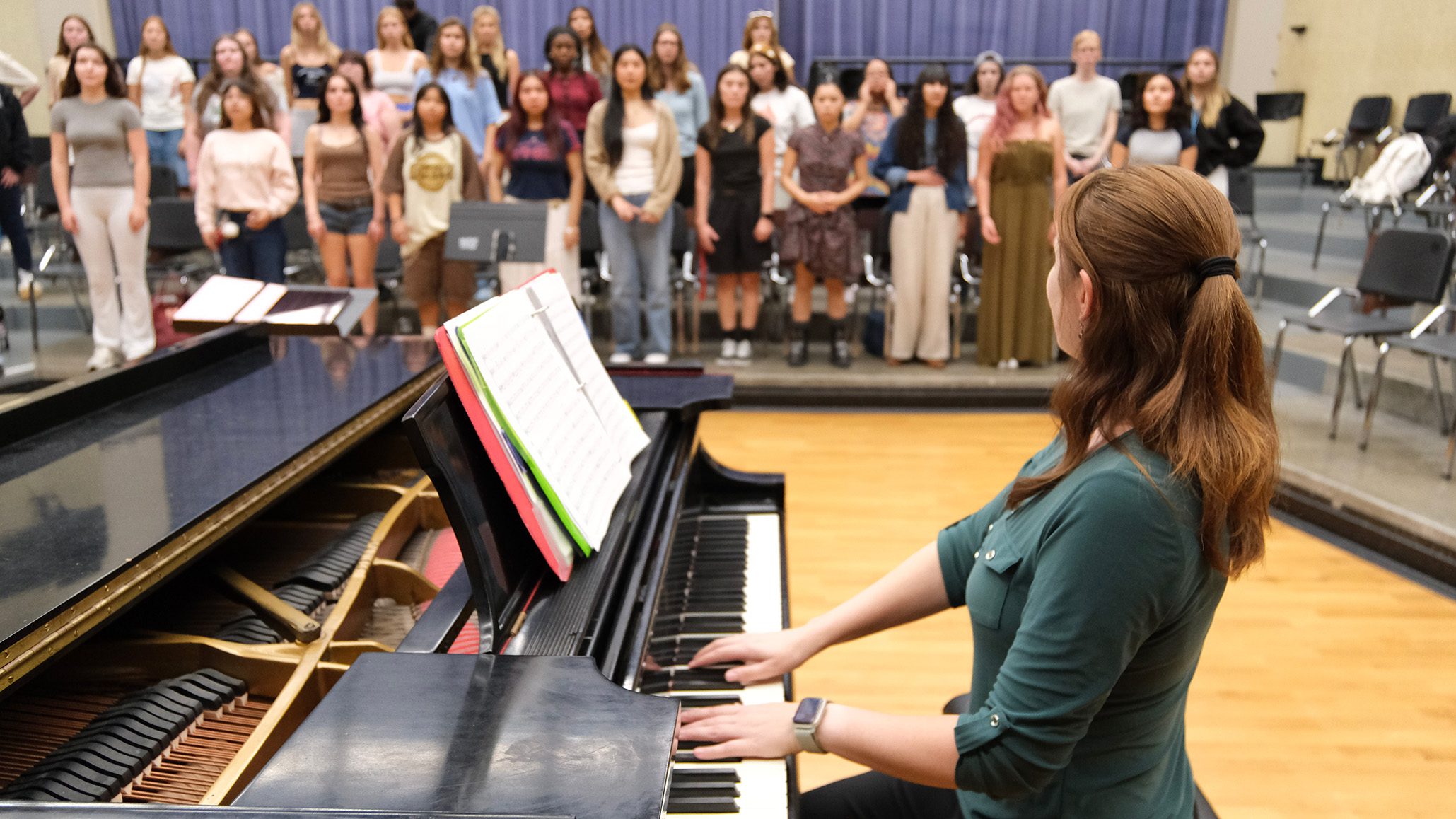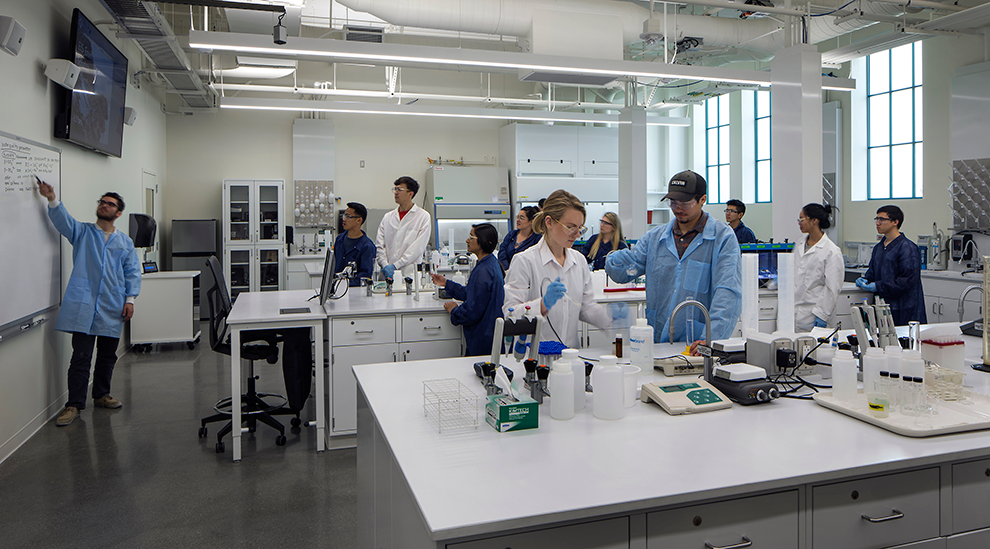SDSU Ecologists Lead Climate Adaptation Project Lauded as a Model
The Connecting Wildlands and Communities project will be featured at the Southwest Adaptation Forum this week.

A tremendous amount of planning goes into mitigating wildfire risk, supporting sustainable water sources, and protecting communities and biodiversity.
Stakeholders at the city, county and state levels rely on comprehensive data backed by science to make informed decisions that will affect how communities and ecosystems adapt to climate change.
This is where conservation ecologists Megan Jennings and Rebecca Lewison and their interdisciplinary team of 15 researchers at San Diego State University come into the picture. Collaborating closely with the Climate Science Alliance, they analyze field data and develop scientific recommendations used by planning agencies and policymakers to shape California’s climate adaptation response.
The Connecting Wildlands and Communities (CWC) project they spearhead, funded by the California Strategic Growth Council’s Climate Change Research Program through a $1.8 million grant, has been lauded as a model for bringing together science and planning to explore how connected landscapes can support adaptation and resilience to climate change, for both ecosystems and local communities. The CWC project will be the focus of the first day at the 2021 Southwest Adaptation Forum (SWAF) virtual conference, held April 6-8.
“There is a tremendous opportunity now to work together for integrated solutions and gather new information and put it in the hands of people who need it,” said Jennings, senior research scientist who co-directs SDSU’s Institute for Ecological Monitoring and Management with Lewison. “We are at a crossroads, with a new administration and climate change is on everyone’s mind.”
At SWAF, the SDSU team will highlight interactions with stakeholders, and demonstrate to decision makers across the southwestern U.S. a template to advance the planning process.
These efforts have received a boost from the Biden administration’s support for climate change initiatives which aligns well with California’s own forward looking policies that lead the nation. It enables climate scientists to focus not just on mitigation but also adaptation and better collaboration. The Climate Change Research Program is part of California Climate Investments, a statewide initiative that puts billions of Cap-and-Trade dollars to work.
Focus on Three Critical Areas
The SDSU team has focused on three key areas that are critical not just for California but also the entire southwest.
- Wildfire risk: To help manage wildfire risk, a fire subgroup team led by geographer Doug Stow focuses on how frequent fires change the ecosystem from shrublands such as chaparral — which protects soil from erosion — to non-native grasses that are lighter and more likely to ignite. “This research helps stakeholders understand where to focus attention, on prevention and education, and by placing concrete barriers along highways to harden road sides where ignition happens commonly,” Jennings said.
- Watershed risk: Another team led by environmental engineer Alicia Kinoshita focuses on watershed risk in built environments where flash floods happen. They study flow rates in streams and connect it with changes in land use, climate and post-wildfire conditions.
- Preserve natural landscapes and support resilient communities: A subgroup led by Lewison and Jennings is looking at how natural landscapes interact with communities. “Natural lands need to exist and function,” Lewison said. “People also want to use them for recreation so we need to think about how to support mental and physical health while ensuring our landscapes are healthy and resilient. We’re integrating this data for planners, and mapping refuges that have been protected from fire and drought, to see where they’re located and how to protect them.” To support resilient landscapes, Lewison emphasized it’s not just the natural world but also built environments that need to be studied, to better understand how natural landscapes can support climate resilient, vibrant communities in cities, rural areas, and tribal lands.
City planning expert Sherry Ryan, director of SDSU’s School of Public Affairs, also plays a critical role on the CWC team as one of the central goals of the project is to ensure the scientific findings from all the subgroups can be used by planners to support climate readiness for the region.
End Users: How Policymakers Use these Recommendations
The researchers are currently working on case studies and developing a menu of recommendations for adaptations and actions for end users - local jurisdictions, cities, and agencies such as the Southern California Association of Governments (SCAG).
SCAG develops long range transportation plans and sustainable strategies for Imperial, Los Angeles, Orange, Riverside, San Bernardino and Ventura counties. Its plans include ways to reduce the region’s greenhouse gas emissions, as well as adaptation strategies that direct growth towards already urbanized areas, so fewer new homes are built in high fire risk areas.
The agency has relied on valuable datasets generated by the SDSU team to help inform its decision making, particularly about the vulnerability of chaparral lands to drought in the region.
“We’ve seen, just in the past year, very real manifestations of climate change, from raging wildfires to extreme weather,” said Rex Richardson, SCAG president and vice mayor of Long Beach. “This has exacted a heavy price – to our health, to our economy, to the air we breathe, to a quality of life that has never faced a more serious threat.”
SCAG has long benefited from its partnerships with universities and the insights from faculty experts that have helped improve quality of life for the region’s residents.
“SDSU has taken a very collaborative approach in the CWC effort by bringing together many different perspectives to help inform their work, including planners, environmental engineers, ecologists, and geographers,” said Kimberly Clark, resource conservation program manager at SCAG. “With the expertise of the project sponsors and this interdisciplinary team, SDSU is connecting new information on the impacts of climate change with local governments, so that land use and transportation decisions are based on the best available climate science.”



